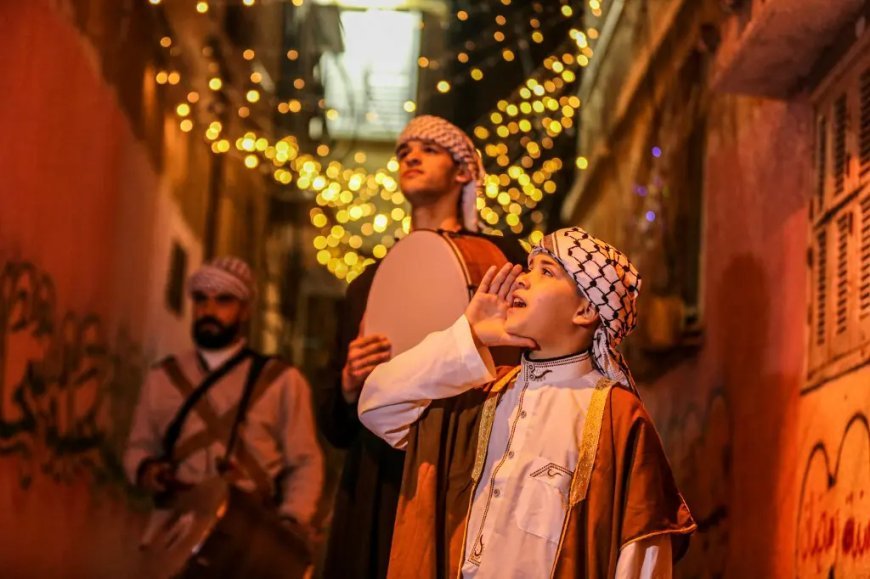Ramadan Around the World: How Different Cultures Observe the Month
Discover how Ramadan is celebrated worldwide with unique traditions and customs. From Arab nations to South Asia, Africa, and Western countries, this sacred month brings people together for fasting, prayer, and community gatherings.

Ramadan is a sacred month in the Islamic lunar calendar that is observed by Muslims across the globe. It is a time when followers of the faith engage in fasting, prayer, introspection, and communal gatherings. While Ramadan is widely celebrated in Arab nations, it is also observed by numerous other cultures and regions worldwide. In this article, we shall explore how various societies commemorate the month of Ramadan.
Introduction to Ramadan
Ramadan, the ninth lunar month of the Islamic calendar, is a sacred period where Muslims worldwide abstain from food and drink from daybreak to sunset. Fasting during Ramadan considered one of the five fundamental pillars of Islam, is obligatory for all able-bodied, mature Muslims.
Ramadan in Arab Countries
Arab countries are known for their unique traditions and customs during Ramadan. In these countries, Ramadan is celebrated with great enthusiasm and reverence. People's daily routine changes during Ramadan, with businesses operating at different times and people spending more time in prayer and contemplation.
Suhoor and Iftar
In Arab countries, the day starts with suhoor, a pre-dawn meal consumed before the start of the fast. At sunset, the fast is broken with iftar, a meal that usually includes dates, soups, and other traditional dishes.
Tarawih Prayers
Tarawih prayers are special evening prayers conducted in mosques during Ramadan. These prayers are usually conducted after iftar and can last for several hours.
Ramadan in South Asia
In addition to Arab nations, South Asian countries like India, Pakistan, and Bangladesh have their distinctive customs and traditions surrounding Ramadan. These countries celebrate the month enthusiastically, adorning mosques and homes with vibrant decorations and lights.
Iftar and Sehri
In South Asia, the fast is broken with iftar. This meal usually includes traditional samosas, kebabs, and biryani dishes. Sehri, the pre-dawn meal, is also an essential part of the daily routine.
Charity and Zakat
Charity and Zakat, giving to those in need, is an essential part of Ramadan in South Asian countries. Many organizations and individuals come forward during Ramadan to distribute food and aid the poor and needy.
Ramadan in Africa
In many African countries, Ramadan is celebrated with great enthusiasm and joy. Ramadan is a time of community gathering, with people coming together to break their fast and offer prayers.
Dates and Fruits
Dates and fruits are essential to the iftar meal in many African countries. It is believed that Prophet Muhammad used to break his fast with dates. Hence, it has become a tradition in many Muslim communities worldwide.
Night Vigils and Tarawih Prayers
In many African countries, night vigils are conducted during Ramadan, where people gather to read the Quran and offer prayers. Tarawih prayers are also an essential part of the evening routine during Ramadan.
Ramadan in Western Countries
Muslims living in Western countries face unique challenges during Ramadan. The long summer days and work schedules make observing fasting and other rituals challenging. However, Muslims in Western countries have found innovative ways to celebrate Ramadan while balancing their work and personal lives.
Virtual Iftars and Online Prayers
Many Muslims in Western countries opt for virtual iftars and online prayers during Ramadan. With the help of technology, Muslims worldwide can connect and celebrate Ramadan together.
Multicultural Celebrations
Muslims living in Western countries also have the opportunity to celebrate Ramadan with people from different cultures and backgrounds. This has led to unique and diverse Ramadan celebrations, with people sharing their traditions and customs.
Conclusion
Ramadan is a time of reflection, prayer, and community gathering. It is a month that brings people together regardless of their cultural or geographical backgrounds. Throughout this article, we have seen how different cultures celebrate Ramadan with their unique traditions and customs.
Regardless of where one lives, Ramadan is a time to reconnect with one's faith, focus on personal growth, and strengthen relationships with family and friends. It is a month of giving, self-reflection, and self-improvement.
If you plan to observe Ramadan, it is essential to educate yourself on the customs and practices of the local community. This will help you understand the significance of the rituals and traditions associated with the month.
FAQs
Is fasting the only requirement during Ramadan?
No, fasting is one of the requirements during Ramadan. Muslims are also encouraged to offer extra prayers, read the Quran, and give to charity during the month.
Can non-Muslims participate in Ramadan?
Absolutely, non-Muslims are invited to take part in Ramadan events and activities. This is a wonderful opportunity for individuals to gain insight into the customs and traditions of their local Muslim community.
Why is Ramadan observed during a different month each year?
The Islamic calendar is structured around the lunar cycle, shorter than the solar calendar. As a result, the observance of Ramadan occurs approximately 11 days earlier each year, relative to the Gregorian calendar.
Can Muslims break their fast during Ramadan?
Yes, Muslims are allowed to break their fast during Ramadan in case of illness, pregnancy, or other medical conditions.
Is it mandatory to fast during Ramadan?
Fasting during Ramadan is mandatory for all non-disabled adult Muslims. However, there are exceptions for sick, pregnant, breastfeeding, or traveling.







